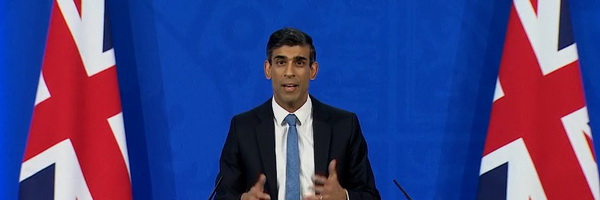A year in tax to remember, or forget?
2022 stands out as one of the most chaotic years in tax, and it will take some beating
2022 stands out as one of the most chaotic years in tax, and it will take some beating.
Putting three Prime Ministers to one side, four Chancellors in the space of four months is unprecedented – the UK has only had nine Chancellors in the 21st century.
2022 started under the backdrop of the UK facing the highest tax burden in 50 years – the 1.25% Health & Social Care levy was confirmed to take effect from April 2022, businesses were planning for Corporation Tax to increase to 25% in April 2023 and individuals would have their personal tax allowances and thresholds frozen for the next 4 years; in total, the measures would raise almost £115 billion for the Government.
The now Prime Minister, but then Chancellor, Rishi Sunak, provided some respite in March’s Spring Statement by increasing the point at which individuals would start paying National Insurance to align with the personal allowance – a tax giveaway of £22 billion, and a promise to cut the basic rate of income tax by 1% in April 2024 (which was later cancelled by the fourth Chancellor of 2022).
Sunak faced serious questions of his own family’s taxes in April, as the press revealed that his wife, Akshata Murty, was filing her UK personal tax returns as a non-dom under the remittance basis. With the public and political pressure, Ms Murty confirmed that she would not claim the remittance basis and pay UK tax on her worldwide income and capital gains. The episode put the UK’s non-dom regime under the spotlight again, with the Labour Party opposition confirming their intention to abolish the regime if elected to Government.
A very important tax case was decided at the First Tier Tribunal which confirmed that modern flapjacks are not cakes, as the judge assessed that they were not something anyone could eat at ‘celebratory functions’. The verdict in Glanbia Milk Ltd v HMRC meant that flapjacks should be subject to VAT at 20% and is in contrast with the decision in 1991 which ruled in favour of McVitie’s that the Jaffa Cake was a cake rather than a biscuit because it went hard when stale rather than soft.
The start of the summer signalled a ferocious debate on the UK’s tax policy. Rishi Sunak stood down as Chancellor, having been in the position for 2 ½ years, and making more fiscal statements than many of his predecessors who served far longer terms. Boris Johnson swiftly appointed Nadhim Zahawi, who immediately declared to reduce the country’s tax burden, but Zahawi would never get the opportunity as Boris Johnson’s forced resignation saw the current Chancellor and his immediate predecessor put themselves forward as Conservative Party leaders with nine other hopefuls.
The Conservative Leadership contest was dominated by tax, with all but one of the contenders promising tax cutting measures which totalled over £330 billion; the outlier, Rishi Sunak, concerned by soaring inflation and managing the nation’s eye-watering debt, led with a fiscally prudent but unattractive approach, and watched Liz Truss and Kwasi Kwarteng enter Downing Street on 6 September.
Truss and Kwarteng were straight out of the blocks to deliver on their tax cutting pledges. The day before the now ill-fated Mini-Budget, the new Government confirmed the reversal of the 1.25% National Insurance increase – resulting in three different NIC regimes applying in the 2022/23 tax year. Kwarteng’s 26-minute whirlwind Mini-Budget on 23 September provided a series of tax cutting measures not seen in a generation worth over £50 billion, with the Chancellor ending his speech by abolishing the 45% additional rate of Income Tax. The pledge to abolish the 45% Income Tax rate was met with fierce social and political backlash, and a plunging sterling value would ultimately see Kwarteng sacked by Liz Truss and replaced by Jeremy Hunt – Kwarteng’s 38 days in office has the distinction of being the second shortest serving Chancellor in British history, only surpassed by Iain McCloud who lasted 30 days in 1970 before sadly dying from a heart attack. While Liz Truss would outlast Kwarteng by 11 days, she would take the unfortunate accolade of being the UK’s shortest serving Prime Minister, with Rishi Sunak succeeding her and getting his chance at his second attempt in 2022.
Sunak retained Jeremy Hunt as Chancellor, who cancelled all but one of the Mini-Budget measures in his Autumn Statement in a £100 billion tax swing – the legacy of the Truss/Kwarteng term would be to bury the Health & Social Care levy, which lasted seven months and served to break the ‘tax triple lock’ promise set out in the Conservative Party’s 2019 manifesto. Hunt went further by freezing the personal tax allowances and thresholds until April 2028 and cancelling Rishi Sunak’s promise to cut the basic rate of Income Tax by 1%.
Where are we now? Well, almost back to where we started. The Chancellor at the start of 2022 is now the Prime Minister, and the UK’s tax burden is still at its highest level in 50 years, and that doesn’t seem like changing in the near future. Sunak/Hunt are better at managing the country’s expectations than their predecessors from 2022 and have been realistic that the UK economy is likely to get worse before it improves.

Even before 2022 is out, Jeremy Hunt has confirmed his Spring Budget will take place on 15 March 2023; we can guarantee that there won’t be any tax cuts announced then. Team Sunak/Hunt will be banking on inflation tempering, global supply chain frustrations easing and the war in Ukraine headed towards conclusion – just one of those outcomes could see an improvement in the UK’s economic fortunes as the Conservatives hope for some room for manoeuvre as they start to plan for the next General Election expected to be in late 2024.
2022 – a year to forget will definitely not be forgotten.
Contact Nimesh

You may also be interested in

A ray of hope for the Property Market: HMRC transaction data suggests recovery momentum

Spotlight on…Are you ready for the FCA’s proposed Stablecoin & Crypto Custody rules?













